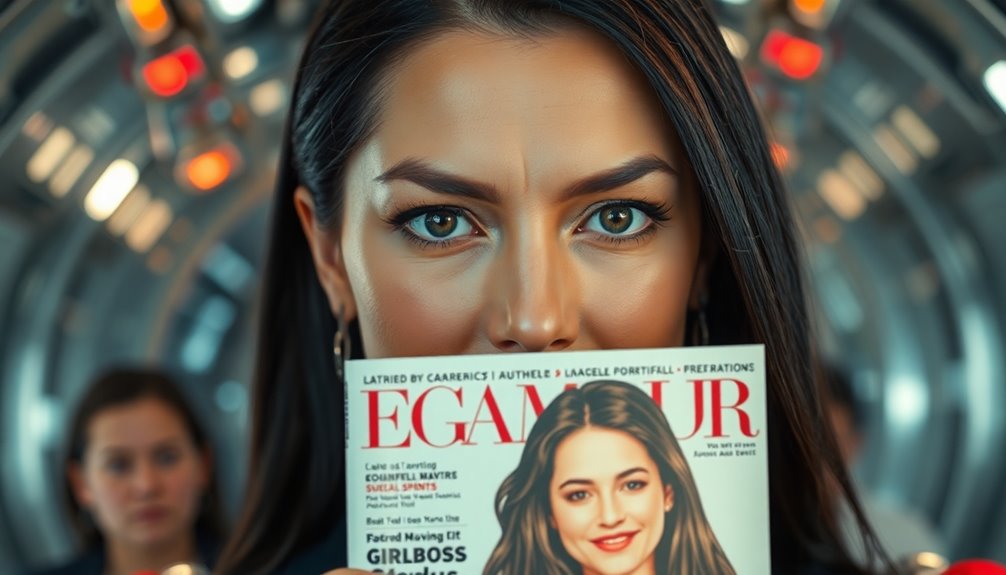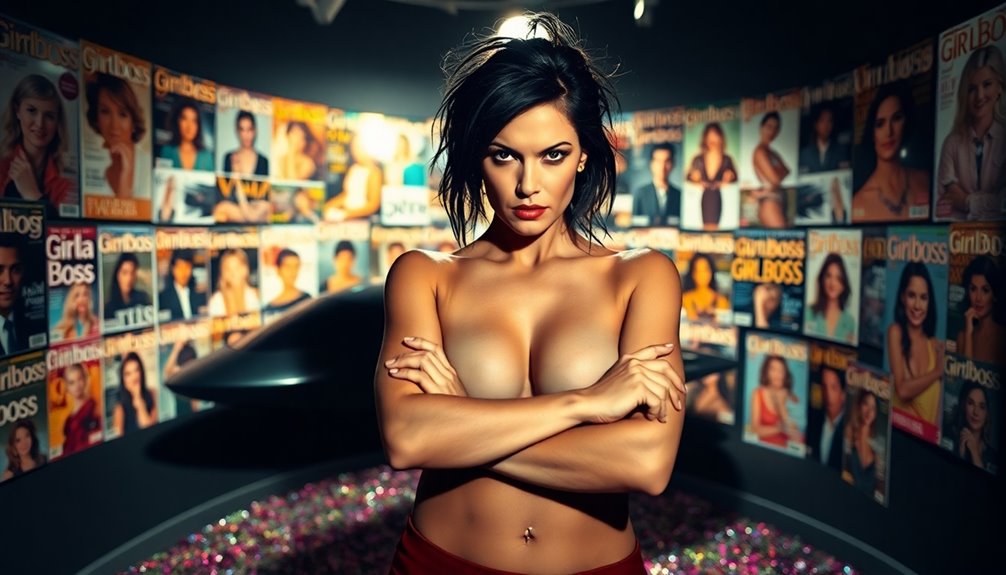Olivia Munn criticizes the upcoming all-female space trip featuring stars like Katy Perry and Gayle King. She labels the venture as extravagant and “gluttonous,” questioning its necessity while global poverty persists. Munn sees the journey as a mere theme park ride, emphasizing a disconnect between celebrating women’s achievements and addressing urgent earthly issues. This critique has sparked mixed reactions, highlighting societal values in space exploration. There’s much more to uncover about the implications of this controversial mission.
Key Takeaways
- Olivia Munn criticizes the upcoming all-female space trip as extravagant and “gluttonous,” highlighting its disconnect from pressing global issues.
- She questions the necessity of spending on space tourism amidst global poverty and urgent earthly challenges.
- Munn compares the space journey to a theme park ride, emphasizing its indulgent nature over meaningful exploration.
- Her critique reflects a broader conversation about wealth disparity and privilege in space endeavors, prompting reflection on societal values.
- Public reaction to Munn’s comments is mixed, with some agreeing on the ethical implications of the mission while others celebrate the participants’ achievements.

While the excitement around the all-female Blue Origin space trip scheduled for April 14, 2025, grows, Olivia Munn’s outspoken criticism has sparked a significant debate. Munn views the trip, featuring high-profile participants like Katy Perry, Gayle King, and Lauren Sánchez, as extravagant and “gluttonous.” She raises valid concerns about the stark contrast between this space endeavor and pressing global issues, such as poverty, which affect countless lives daily.
During a recent episode of TODAY with Jenna & Friends, Munn questioned the necessity of spending exorbitant amounts on a brief 11-minute journey into space. The flight duration of the mission her comments resonate with many who feel that prioritizing space tourism over addressing urgent earthly challenges is misguided. Munn’s analogy, likening the trip to a theme park ride, underscores her belief that this is more about indulgence than exploration or empowerment. This perspective aligns with a growing sentiment that questions the ethics of spending on space tourism while significant issues like poverty persist.
Munn questions the value of a costly 11-minute space trip, arguing it reflects indulgence over meaningful exploration.
The concept of a “Girlboss” space trip is meant to celebrate female achievement, but Munn’s critique suggests a disconnect between this intent and the reality of social responsibilities. While the mission aims to be historic, the public’s reaction has been mixed. Some admire the participants for their accomplishments, while others share Munn’s disappointment over the perceived extravagance.
Media outlets have jumped on this discussion, highlighting the cultural impact of both the trip and its critique. Celebrities like Katy Perry inevitably draw more attention, but they also provoke critical analysis about wealth and access in space exploration. Many see this trip as a symbol of privilege rather than a groundbreaking scientific endeavor.
Ultimately, Munn’s perspective invites you to reflect on the broader implications of space tourism. Should society prioritize such ventures when there are vital issues on Earth that demand urgent attention? It’s a conversation worth having as you consider the balance between celebrating women’s achievements and addressing the challenges facing our world.
Frequently Asked Questions
What Are Olivia Munn’s Most Notable Acting Roles?
Olivia Munn’s most notable acting roles showcase her versatility. You might recognize her as Psylocke in “X-Men: Apocalypse,” where she brought a fierce character to life.
She also shone in “The Newsroom” as Sloan Sabbith, a role that highlighted her dramatic range. In “The Predator,” she took on a leading role, and her comedic chops are evident in “Mortdecai.”
Don’t forget her voice work in “The Lego Ninjago Movie,” adding yet another dimension to her career.
How Did the Term “Girlboss” Originate?
The term “girlboss” originated from Sophia Amoruso’s 2014 autobiography, which detailed her journey from a struggling entrepreneur to a successful CEO.
You might remember how she used hashtags to promote her message of female empowerment in male-dominated industries.
Initially, it celebrated women’s achievements, but over time, it evolved into a controversial concept, facing criticism for focusing on individual ambition rather than fostering collective change within the feminist movement.
What Is the Controversy Surrounding Space Tourism?
You might think space tourism is a thrilling leap into the future, but beneath that excitement lies a web of controversy.
Critics raise alarms about safety, with minimal regulations and unpredictable technical failures.
Environmentalists argue that rocket launches exacerbate climate issues, while others highlight the stark wealth disparity it creates.
As you ponder the allure of space travel, consider whether it’s worth the risks and ethical dilemmas it brings to the forefront of society.
Who Else Has Criticized the Girlboss Movement?
You’ll find that numerous activists, writers, and scholars have criticized the girlboss movement.
Figures like bell hooks and Rebecca Solnit argue it reinforces individualism over collective empowerment. Critics like Jennifer Weiner highlight how it often overlooks the struggles of marginalized women.
Additionally, many feminist groups assert that the term “girlboss” undermines women’s authority, emphasizing superficial success instead of addressing systemic inequalities.
This focus detracts from the broader goal of true gender equality in society.
What Are the Environmental Impacts of Space Travel?
Space travel’s environmental impacts are like a hidden storm brewing in the atmosphere.
When rockets launch, they consume massive fuel, releasing soot and greenhouse gases that linger in the stratosphere. This pollution can warm the climate, harm the ozone layer, and increase harmful UV radiation.
Compared to traditional travel, a single rocket trip creates 100 times more pollution per passenger, raising urgent concerns as the space industry expands.
We need to consider these effects seriously.
Conclusion
In the end, Olivia Munn’s disapproval of the girlboss space trip serves as a reminder that not every shiny rocket launch is a step forward. Just like a beautifully wrapped gift can still hold an empty box inside, the glamor of space travel for a select few doesn’t equate to progress for all women. True empowerment means lifting everyone up, not just a privileged few. Let’s focus on building a grounded foundation here on Earth before reaching for the stars.









